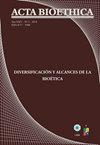医学和公共卫生实践中的基因编辑如何经得起生物伦理的考验
IF 0.3
4区 哲学
Q4 ETHICS
引用次数: 3
摘要
:近年来,基因编辑越来越多地被用作解决公共卫生问题的技术手段之一。生命科学和基因编辑技术领域的巨大进步使人类通过基因编辑技术控制和改变人类生理特征成为可能,并为该技术创造了广阔的应用前景。然而,基因编辑技术面临着许多重大的伦理风险,人类基因编辑实验在过去很长一段时间内都被禁止。现实的技术突破和真实案例的出现,迫使伦理学界重新审视这个问题。通过对人类基因编辑技术的潜在利益和伦理风险的分析和权衡,可以发现,人类基因编辑用于不同目的的不同应用被认为具有不同的可接受性。其中,以医学为目的的人类基因编辑没有根本的道德障碍,以增强为目的的人的基因编辑在当前社会环境下不可能被伦理和现实所允许,以转化为目的的人为基因编辑从根本上违反了伦理规范。因此,如果基因编辑只用于解决人类的医疗和公共卫生问题,那么它是可以被允许的。本文章由计算机程序翻译,如有差异,请以英文原文为准。
How the gene-editing in medicine and public health practice could stand the test of bioethics
: In recent years, gene editing is increasingly used as one of the technical means to solve public health problems. The great progress made in the field of life science and gene-editing technology has made it possible for humans to control and alter human physiological characteristics through gene-editing technology and created a broad application prospect for this technology. However, gene-editing technology has faced with many significant ethical risks, and human gene editing experiments have been banned for a long time in the past. Realistic technological breakthroughs and the emergence of real cases force the ethics circle to re-examine this issue. Through the analysis and trade-off of the potential benefits and ethical risks of human gene-editing technology, it can be found that different applications of human gene editing for different purposes are considered to have different acceptability. Among them, human gene editing for medical purposes has no fundamental moral barriers, human gene editing for purposes of enhancement cannot be allowed by ethics and reality in the current social environment, and human gene editing for purposes of transformation fundamentally violates ethical norms. Therefore, gene editing can be allowed if it is only used to solve human medical and public health problems.
求助全文
通过发布文献求助,成功后即可免费获取论文全文。
去求助
来源期刊

Acta Bioethica
Bioethical Issues-
CiteScore
0.40
自引率
0.00%
发文量
22
审稿时长
12 weeks
期刊介绍:
Acta Bioethica is a biannual publication by the Interdisciplinary Center for Studies in Bioethics of the University of Chile (ISSN 0717-5906, press edition, y 1726-569-X, electronic edition), which publishes in three languages: Spanish, English and Portuguese.
Indexed in Science Citation Index (SCI), Scopus, Lilacs, SciELO y Latindex, and in database from several Institutions; it constitutes a pluralistic source of perspectives and an important tribune which accepts the contributions of authors compromised with the interdisciplinary study of ethical determinants and consequences of techno scientific research.
 求助内容:
求助内容: 应助结果提醒方式:
应助结果提醒方式:


